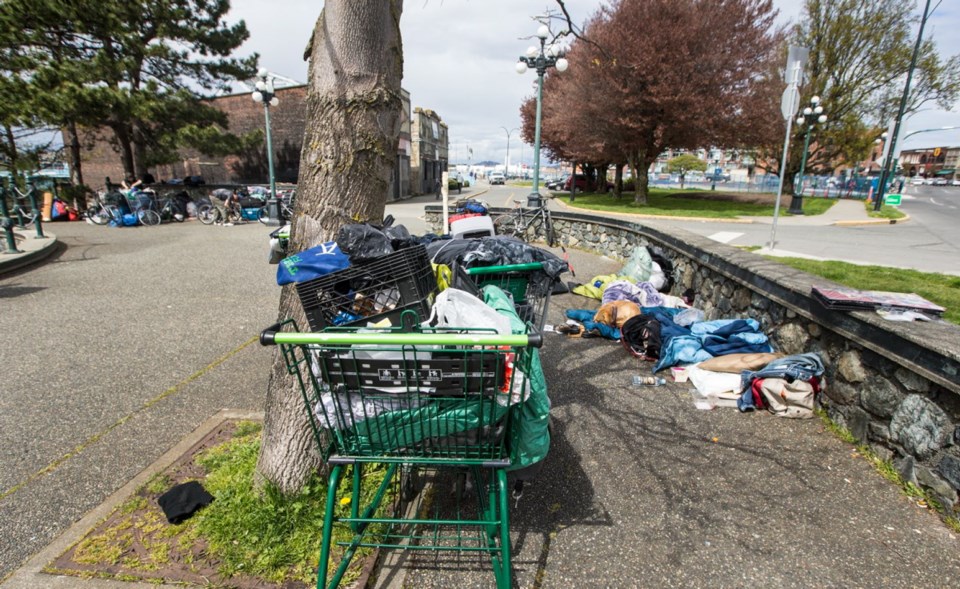A time limit should be set for how long people can stay in a park, and homeless people should be prohibited from lingering in the same tenting spot after they have packed up their belongings, says a proposal from Victoria city staff.
The city’s parks bylaw does not include any limit on how long a person or groups of people can occupy the same location in a park.
Staff want to impose a six-hour limit within a 24-hour period, except for people who are sheltering in the park who would be required to move to another location at least 100 metres away at the end of a 12-hour sheltering period.
Mayor Lisa Helps said she supports the proposals. They are not designed as an attack on homeless people but are instead about protecting the parks’ natural ecosystems, she said.
“The reality is people are sleeping in parks and all we’re asking is that when they wake up, if they could just move somewhere more than 100 metres so the flora doesn’t become compacted, the grass doesn’t die.
“I wish that people didn’t have to sleep in tents in the park but they do.”
Helps said the city has seen incredible pressure on parks since the Adams decision — a 2008 B.C. Supreme Court ruling which deemed it unconstitutional to deny a person the right to erect shelter in the absence of available shelter beds.
“I think this is a balanced approach, balancing people’s right to shelter and quite frankly the right to be in public space when they have nowhere else to go and also the city’s responsibility to make sure that there’s not environmental damage done,” Helps said.
City staff are seeking explicit authority for staff or police to impound property unlawfully left in a park.
Impounded property can be claimed and must be made available within six hours of being seized. It would be returned to the owner if claimed within 30 days upon signing an undertaking it will not be again left in the park or with payment of a $25 impoundment fee. The fee will be waived if it’s seen as causing a hardship. Items will be disposed of if not claimed.
In all, city staff are proposing five major changes to the city’s parks bylaw:
• Establishing a time limit on occupation of a park or part of a park.
• Authority to impound property unlawfully left in a park.
• The ability to temporarily close a park or part of a park for public safety or maintenance.
• A prohibition on interference with city workers conducting park clean up, maintenance or other work.
• Introducing the ability to apply for permits to carry out protests “and other expressive activities” in a park.
In the wake of the 2008 B.C. Supreme Court ruling, city bylaws permit people to shelter in most city parks between 7 p.m. and 7 a.m. but shelters and belongings are to be packed up by 7 a.m.
Police conduct early morning patrols waking tenters each morning .
Compliance with the bylaw is generally good, city staff say in a report to be considered by councillors Thursday, but there are problems.
“The real concern is that some persons remain in the same location where they have sheltered the previous night. This kind of prolonged occupation of the same space has significant impact on park areas in terms of physical effect on grass and other vegetation as well as on the ability of other park users to use the area for recreation activities,” says the staff report.
So many people were hanging out — belongings strewn about — in tiny Reeson Park at the foot of Yates Street in downtown Victoria this summer that it adopted the nickname Chattel City.
Helps was uncertain what would happen in a small park like Reeson where a move of 100 metres would probably take a person out of the park.
“Maybe Reeson Park would be one to actually exempt because if there’s nowhere for people to go within 100 metres it doesn’t make sense,” she said.



